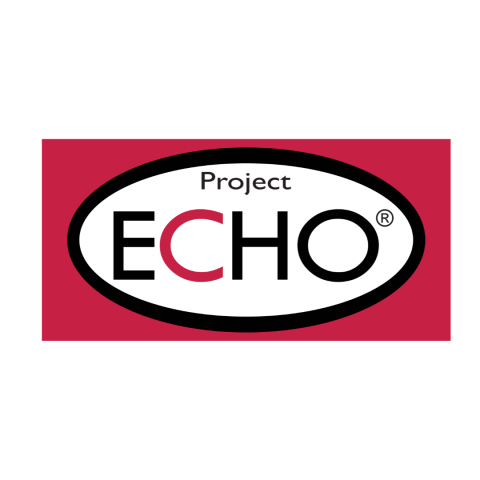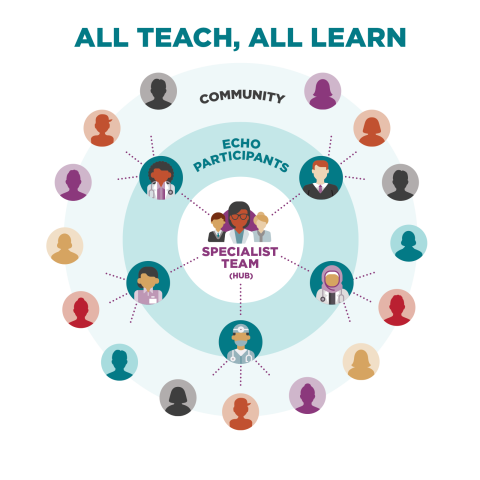
About the UNH Project ECHO Hub
UNH is a Project ECHO® Hub led by the NH Citizens Health Initiative, a program of the UNH Institute for Health Policy and Practice. The UNH ECHO Hub launched in 2018 with the goal of sharing knowledge and increasing expertise throughout New Hampshire communities. Since then, the UNH Project ECHO Hub has launched a variety of ECHO programs on a range of topics and has expanded our reach to northern New England and nationally.
What is Project ECHO®?

The Project ECHO® model is an evidence-based method developed by researchers at the University of New Mexico, connecting interdisciplinary specialists with community-based practitioners using web conferencing technology. During teleECHO™ sessions, experts mentor and share their expertise across a virtual network through case-based learning, enabling practice teams to manage complex conditions in their own communities.
The UNH Project ECHO Hub is a program of the NH Citizens Health Initiative, UNH Institute for Health Policy and Practice.
Copyright 2024.
For more information about Project ECHO email unh.projectecho@unh.edu
